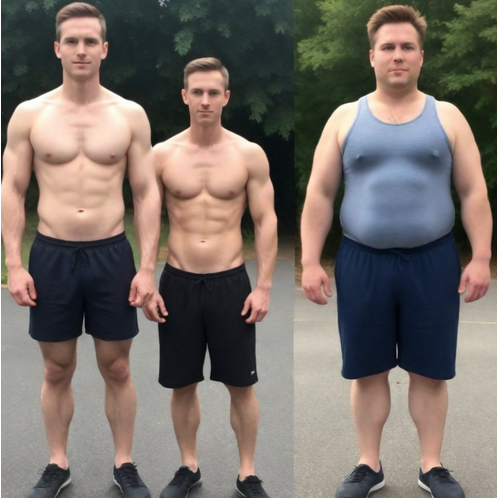There's a common misconception among doctors that tissue growth is impossible after age 25—they're told this at medical schools, but it's untrue. Physiologically, growth is possible at any age, but it occurs with certain limitations in different tissues. These limitations can be genetic or epigenetic. For example, adipose tissue grows without any particular limitations, muscle tissue is more limited than adipose tissue, and bone tissue is severely limited by various metabolic factors. However, for obvious reasons, people are primarily interested in the growth of muscles, bones, and certain organs. 
Growth factors
General growth factors for all tissues, at any age: growth hormone, IGF-1, thyroid hormones, and sex hormones. With age, these substances typically decrease rather than increase, which is why growth is considered to stop. I don't think this is a secret, but there are important nuances that few people know.
Important nuances of tissue growth
Nuance number one: The growth of connective tissue (including skin, blood vessels, ligaments, and, to some extent, muscle and bone) depends on certain connective tissue enzymes. I've already written about these enzymes in older posts (MMP enzymes). However, I haven't yet written about such an important enzyme as Lysyl oxidase (LOX) . This enzyme's purpose is to "anchor" growth. It's a copper-containing amino oxidase that accelerates the cross-linking of proteins in the extracellular matrix. In other words, it determines the strength of your collagen. And collagen is present in many places, as I've already mentioned, from blood vessels to skin. So, when this enzyme is in excess, growth stops, because growth requires "soft" collagen, and this enzyme makes collagen rigid. I'm certainly exaggerating and simplifying the description of this process, but it's something like rebar in concrete during construction. For example, there were some interesting studies where the penis size of adult male rats was increased by inhibiting this enzyme and applying mechanical force (tissue stretching). The link to the study is below the post. I'd bet anything that it works similarly in humans.
Нюанс номер два: Существует такой фермент как Ароматаза, медики о нем вкурсе из-за того что он создает женский гормон эстрадиол.. Однако, мало кто вкурсе что он еще контролирует рост костей. Чем больше ароматазы тем меньше линейный рост скелета. В конце поста фото (второй линк) человека который имеет генетически недостаток этого фермента. Просто оцените его телосложение. Есть препараты что ингибируют этот фермент. Так вот, если подавлять этот фермент, да еще и давать гормон роста человеку — скелет человека удлиняется. Есть исследования на подростках (3й линк) где рост был увеличен на целых 20 см за 3 года терапии. На взрослых таких опытов я не видел, но и тут могу поспорить что +3-5 см можно получить благодаря такой терапии.
Нюанс номер три: Половые гормоны (тестостерон, эстрадиол) не дают линейный рост! А наоборот его останавливают. Грубо говоря, под воздействием этих гормонов все утолщается, а не растет в длину! Об этом мало кто знает, и мало кто понимает подробности этого процесса, но это факты. Например у девушек под воздействием эстрадиола может вырасти грудь и попа, но рост скелета ввысь при этом будет тормозится. У мужчин под воздействием тестостерона утолщаются мышцы, связки (голосовые связки), половой член, кожа, но рост скелета ввысь тоже останавливается! Половые гормоны закрывают зоны роста!
Нюанс номер четыре: Для роста любых тканей нужна энергия в виде АТФ. Если у человека есть проблемы с митохондриями, что создают эту энергию, никакого роста не будет. Если человек на диетах — роста не будет. Если энергия идет на активацию иммунитета (хрон. воспаление) — роста не будет. И т.д. — без энергии нет роста в общем.
Нюанс номер пять: Рост тканей во взрослом возрасте это риск онкологии. Особенно в больном организме! Поэтому и существуют всякие антионкогены, что тормозят избыточный рост. Также некоторые органы ограничены в росте генетически. Например если слышите истории об огромных мышцах, о члене по колено, или о грудях-арбузах — это все мутации в генах что должны тормозить подобное. Не влезайте в эту тему без четкого понимания как устроен ваш организм!
https://pmc.ncbi.nlm.nih.gov/articles/PMC7523611
https://pubmed.ncbi.nlm.nih.gov/27710241
